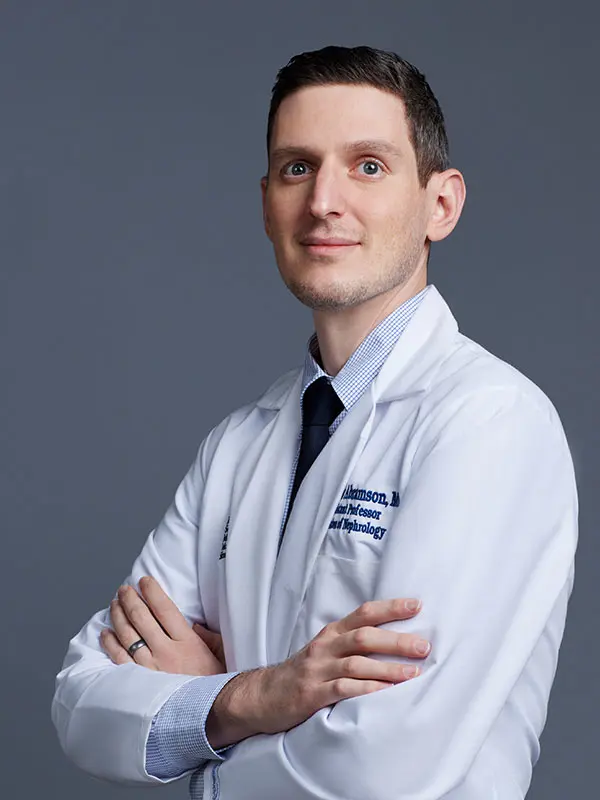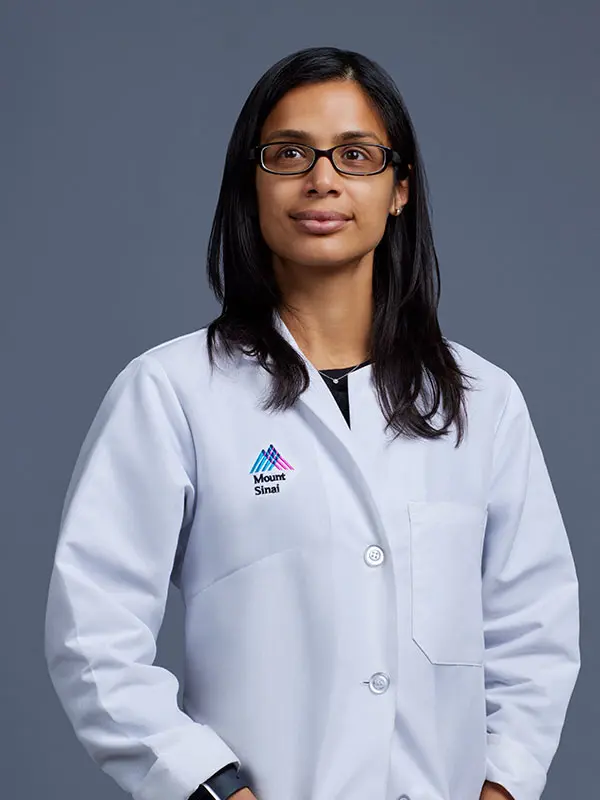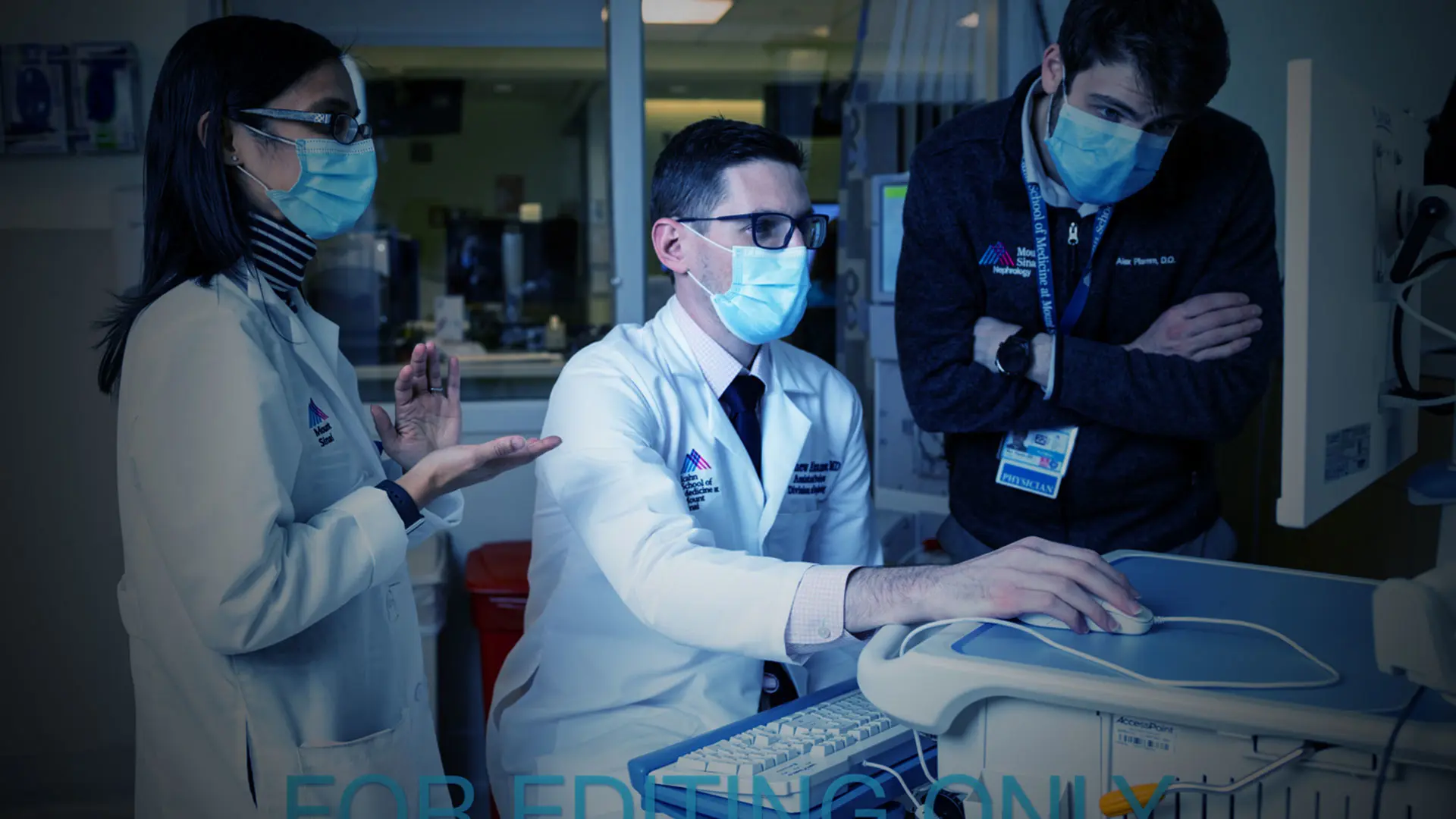Electrolyte disorders, kidney disease, hypertension—these are all conditions that Priya P. Deshpande, MD, has extensive expertise in. But approximately 30 percent of the patients who present with these issues at the Mount Sinai Health System have developed them due to cancer or cancer treatment. And that percentage is growing, which presents both a challenge and an opportunity for onco-nephrologists like her.
“These cases not only require multidisciplinary care due to their complexity, but also are particularly interesting from an academic perspective,” says Dr. Deshpande, Assistant Professor of Medicine (Nephrology) at the Icahn School of Medicine at Mount Sinai. “Based on the trends I was seeing, I decided to develop a dedicated onco-nephrology program at Mount Sinai to provide enhanced, more directed care to patients with cancer-related or cancer treatment-related kidney complications.”
Launched in 2019, the program places Mount Sinai at the forefront of an emerging field; there are fewer than 10 such programs nationwide and only a few hundred onco-nephrologists in the world. Led by Dr. Deshpande and Matthew Abramson, MD, Assistant Professor of Medicine (Nephrology) at Icahn Mount Sinai, the program provides Mount Sinai oncologists and urologists with ready access to identified, dedicated experts in onco-nephrology.
“This is a burgeoning field that more hospitals are opting to explore based on strong interest from nephrologists and oncologists,” says Dr. Abramson, who joined Mount Sinai in July 2020 from Memorial Sloan Kettering Cancer Center, where he studied onco-nephrology as a specialty sub-fellowship and led a study on the effects of hematopoietic stem cell transplants on the kidney. “The opportunity to help develop a dedicated onco-nephrology program from scratch was part of what drew me to Mount Sinai.”
Although most nephrologists, including those at Mount Sinai, have experience in treating cancer-related kidney issues, Dr. Abramson notes that the exponential growth of oncology treatments, coupled with the challenges they pose, requires more specialized expertise. “It is difficult to maintain a strong handle on these new treatments unless you are constantly monitoring them,” he says. “Moreover, clinical trials do not necessarily provide a clear picture of how patients will react to these treatments, many of which are nephrotoxic. That is expertise you develop by focusing on treating these patients. Dr. Deshpande and I have that expertise and we will continue to build our knowledge through this program."
Approximately 200 patients have been treated through the program to date, thanks to Drs. Deshpande’s and Abramson’s efforts to engage Mount Sinai oncologists and urologists and secure referrals for patients presenting with cancer- or cancer treatment-related acute kidney injury or kidney disease. Referrals are typically made by text and email, and Drs. Deshpande and Abramson work with a care coordinator to confirm insurance coverage and book patients for an in-clinic or video conferencing consultation within a week to 10 days.
“We are also interested in producing original research that addresses our knowledge gaps as to why cancer patients develop kidney disease and how best to care for them.”
- Matthew Abramson, MD
“Having identified, dedicated specialists in place has made the referral process more consistent and efficient,” Dr. Deshpande says. “We are able to email our assessments and recommendations back to the referring teams and enable patients to start treatment quicker. We are also available to answer any questions that oncologists have related to patient potassium levels, electrolytes, or hypertension. It enables more seamless consultation and thus better outcomes.”
In some cases, patients are referred for pretreatment consultations to assist in therapeutic decisions. “We like to get involved as early as possible to ensure positive outcomes,” Dr. Deshpande says. “For example, we can perform a kidney biopsy to assess renal pathology and help guide subsequent treatment among patients who present with monoclonal gammopathy of unknown significance. We can help optimize blood pressure management among patients who have chronic kidney disease prior to undergoing a partial or total nephrectomy to treat genitourinary cancer. And we can assist in chemotherapeutic agent decisions and setting dosing regimens to ensure they are kidney-friendly.”
As referrals continue to grow, Drs. Deshpande and Abramson are exploring opportunities to expand the program and apply their expertise in new ways. They are developing interdisciplinary programs to help manage patients with polycystic kidney disease and amyloidosis, specifically patients who have monoclonal gammopathy of undetermined significance with kidney disease. They are also interested in growing the academic and research capacity of the onco-nephrology program.
“We have the resources to create a fellowship program to train nephrologists in onco-nephrology, but we want to make sure there are ample research opportunities for these fellows, so we are also interested in producing original research that addresses our knowledge gaps as to why cancer patients develop kidney disease and how best to care for them,” Dr. Abramson says. “The goal is to grow a comprehensive program that sets standards in terms of onco-nephrology education, research, and patient treatment.”
Featured

Matthew Abramson, MD
Assistant Professor of Medicine (Nephrology)

Priya P. Deshpande, MD
Assistant Professor of Medicine (Nephrology)
